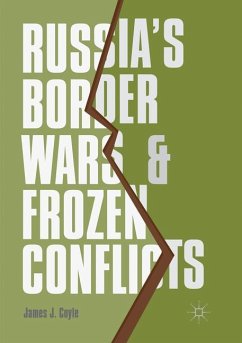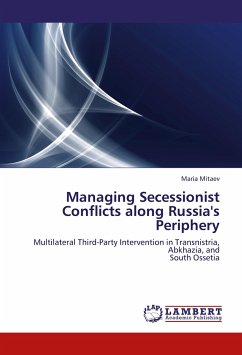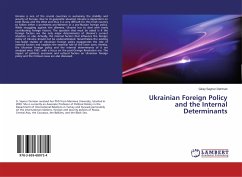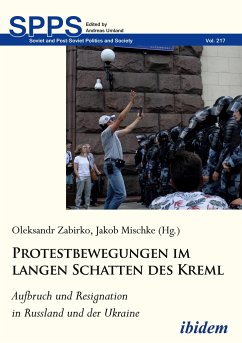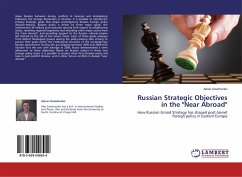
Russian Strategic Objectives in the "Near Abroad"
How Russian Grand Strategy has shaped post-Soviet foreign policy in Eastern Europe
Versandkostenfrei!
Versandfertig in 6-10 Tagen
27,99 €
inkl. MwSt.

PAYBACK Punkte
14 °P sammeln!
Given Russian behavior during conflicts in Georgia and immediately following the Orange Revolution in Ukraine, it is possible to identify the primary strategic goals that shape contemporary Russian foreign policy decision-making. Russian policy is driven by three major goals: the maintenance of military and economic security with respect to neighboring states, retaining regional hegemony and excluding other major actors from the "near abroad", and providing support to the Russian cultural empire left behind by the fall of the Soviet Union. Each of these goals emerges from distinct ideological ...
Given Russian behavior during conflicts in Georgia and immediately following the Orange Revolution in Ukraine, it is possible to identify the primary strategic goals that shape contemporary Russian foreign policy decision-making. Russian policy is driven by three major goals: the maintenance of military and economic security with respect to neighboring states, retaining regional hegemony and excluding other major actors from the "near abroad", and providing support to the Russian cultural empire left behind by the fall of the Soviet Union. Each of these goals emerges from distinct ideological groups among the policy-making elite striving to pursue their goals within the institutional structure of the contemporary Russian government. During the gas disputes between 2005 and 2009 with Ukraine and the war with Georgia in 2008, Russia demonstrated a keen adherence to these objectives. Based on Russian actions in these two foreign policy crises, it is possible to project what form Russian policy will take in post-conflict Ukraine, and in other future conflicts in Russia's "near abroad".





